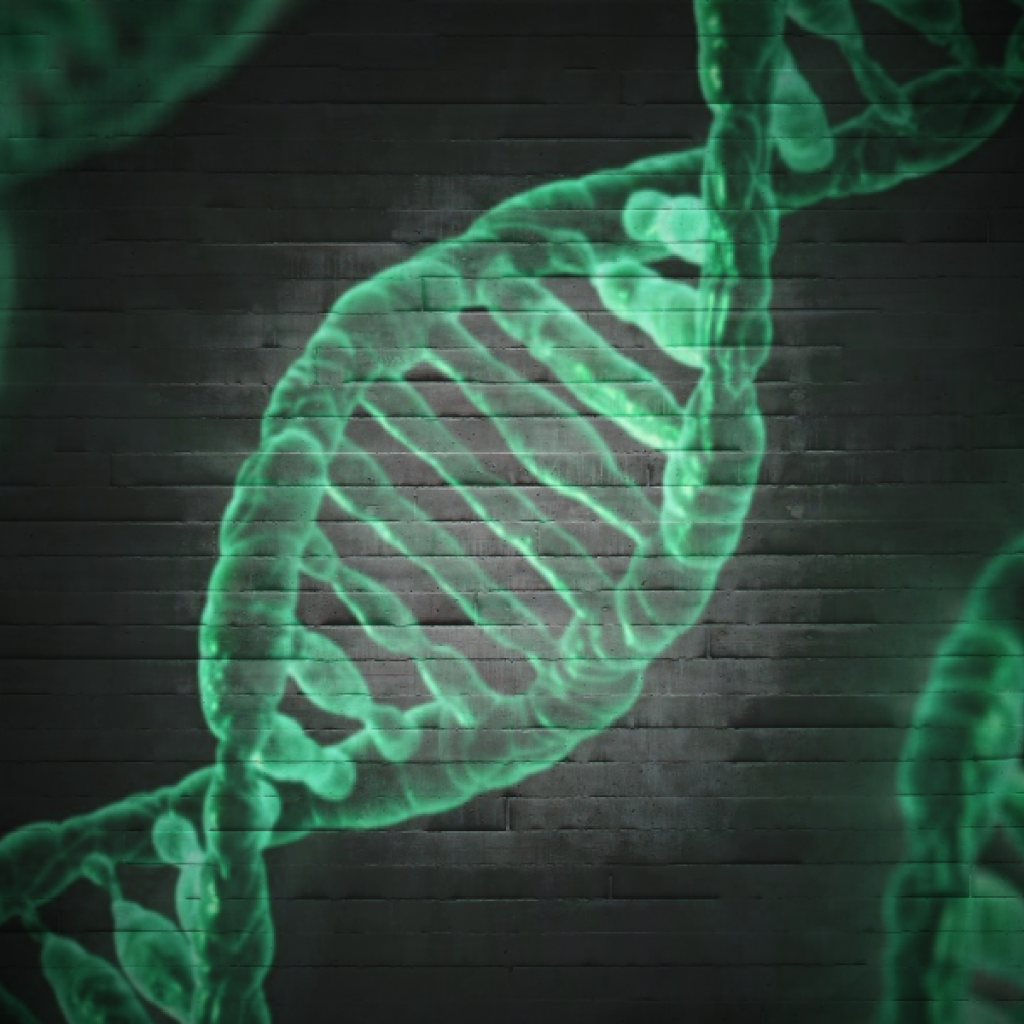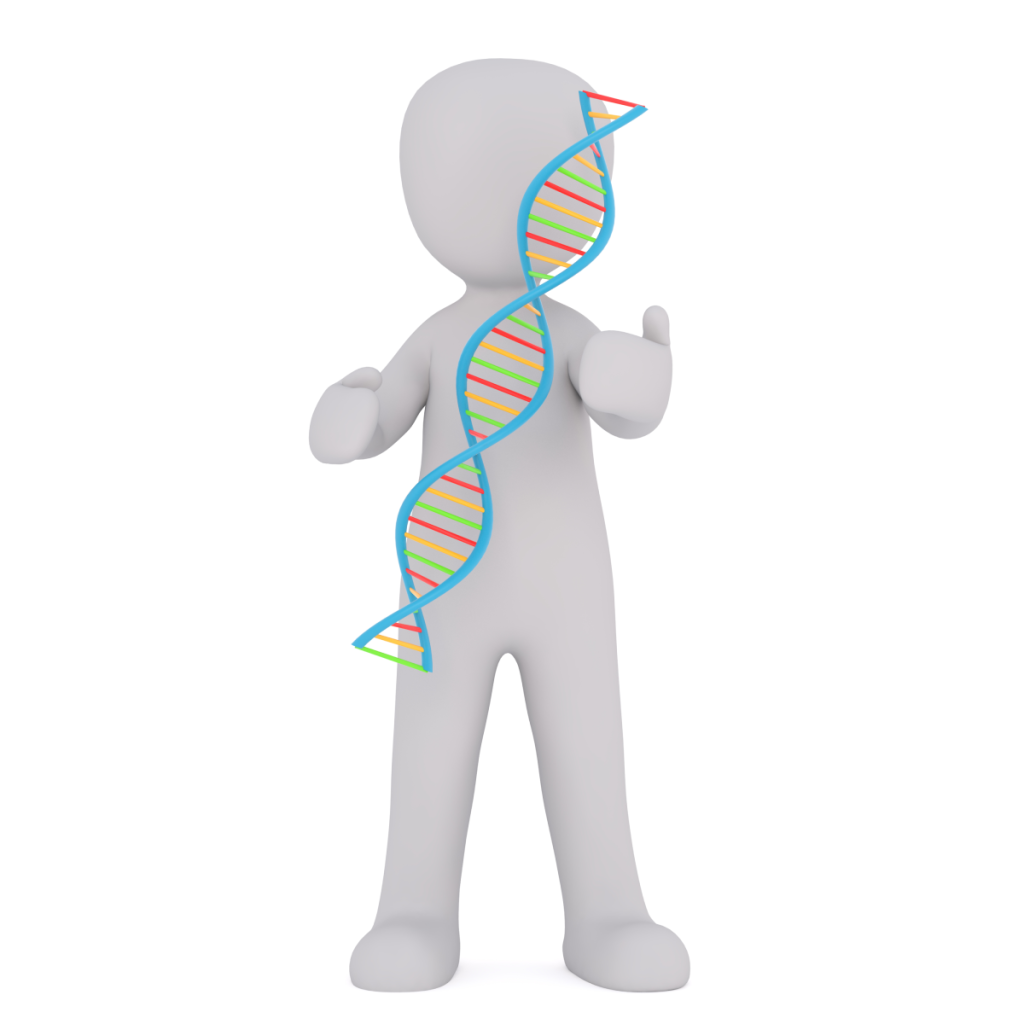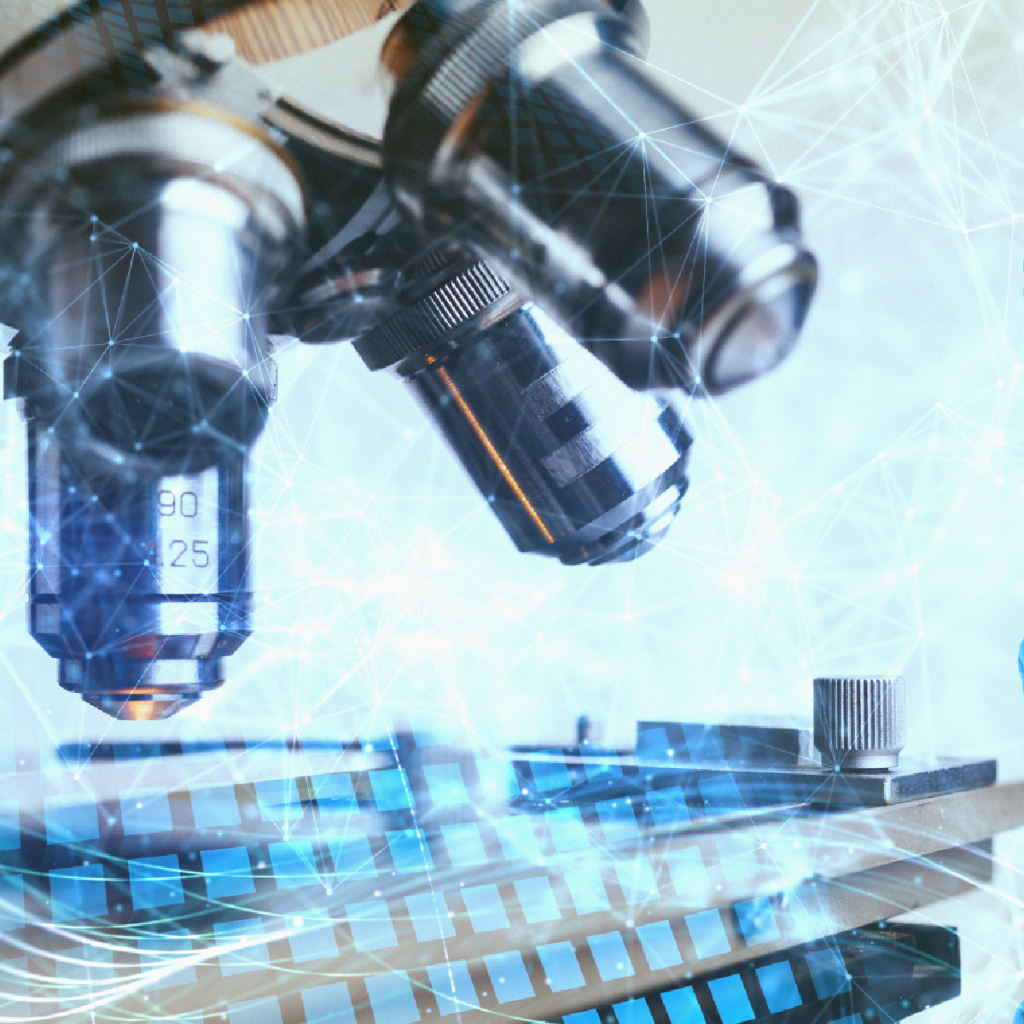Can NMN Repair DNA?
08/08/2023

DNA repair is a vital process that occurs constantly in our cells to maintain the integrity of our genetic material. Understanding the basics of DNA repair is essential to appreciate the potential role of Nicotinamide Mononucleotide (NMN) in this process.

Understanding the Basics of DNA Repair
What is DNA Repair?
DNA repair refers to the collection of cellular mechanisms that correct damage to the DNA molecule. The DNA in our cells can be damaged by various factors, such as exposure to radiation, chemicals, or errors during replication. If left unrepaired, this damage can result in mutations, genomic instability, and an increased risk of diseases.
One of the most common types of DNA damage is the formation of DNA lesions, which are abnormal structures or chemical modifications in the DNA molecule. These lesions can interfere with the normal functioning of the DNA, such as blocking the replication machinery or disrupting the transcription process.
To counteract these lesions, cells have evolved a diverse array of DNA repair pathways. These pathways can recognize different types of damage and initiate the appropriate repair mechanisms. Some repair pathways can directly reverse the damage, while others involve the removal and replacement of the damaged DNA segment.
Why is DNA Repair Important?
DNA repair is vital for the survival and proper functioning of our cells. It safeguards the genetic information and ensures the accurate transmission of genetic material to daughter cells during cell division. When DNA damage occurs, repair mechanisms prevent the propagation of errors and maintain the stability of the genome.
Without efficient DNA repair, cells would accumulate genetic mutations over time, leading to the development of various diseases, including cancer. In fact, defects in DNA repair pathways are associated with a higher risk of cancer susceptibility syndromes, where individuals have an increased predisposition to developing certain types of cancer.
Furthermore, DNA repair is not only important for maintaining the integrity of our genome, but it also plays a crucial role in other biological processes. For instance, DNA repair is involved in the proper functioning of our immune system, as it helps in the development and diversification of immune cells. Additionally, DNA repair is essential for the repair of DNA damage caused by certain anti-cancer drugs, making it a critical factor in cancer treatment.
Research in the field of DNA repair is ongoing, as scientists strive to understand the intricate mechanisms involved and develop novel therapeutic strategies to target DNA repair pathways. By gaining a deeper understanding of DNA repair, we can potentially enhance our ability to prevent and treat diseases related to DNA damage.
Introduction to NMN
Welcome to the fascinating world of Nicotinamide Mononucleotide (NMN)! In this article, we will explore the wonders of this compound and its crucial role in cellular metabolism.
What is NMN?
Nicotinamide Mononucleotide (NMN) is a compound that has captured the attention of scientists and researchers alike. It serves as a vital precursor to the production of NAD+, a coenzyme that participates in numerous enzymatic reactions in the body.
But what exactly does this mean? Let's dive deeper into the intricate workings of NMN.
The Role of NMN in the Body

Within the intricate machinery of our cells, NMN acts as a key player in the production of NAD+. This coenzyme is involved in various cellular functions, making it an essential component for our overall well-being.
One of the primary roles of NAD+ is its involvement in energy metabolism. It serves as a crucial catalyst in converting the food we consume into the energy our cells need to function optimally. Without adequate levels of NAD+, our cells would struggle to produce the energy required for their day-to-day activities.
Furthermore, NMN also plays a significant role in the regulation of gene expression. It acts as a messenger, relaying important signals to our genes, which then determine how our cells function and behave. This intricate dance between NMN and our genes ensures that our body operates smoothly and efficiently.
Additionally, NMN is crucial for maintaining cellular redox balance. Redox balance refers to the equilibrium between oxidizing and reducing agents within our cells. This delicate balance is essential for proper cellular function and overall health. NMN helps regulate this balance, ensuring that our cells remain in optimal condition.
However, as we age, the levels of NAD+ in our bodies decline. This decline can lead to cellular dysfunction and potentially contribute to age-related diseases. Understanding the role of NMN in replenishing NAD+ levels becomes increasingly important as we strive to maintain our health and well-being as we grow older.
By supplementing with NMN, individuals may be able to support their NAD+ levels and potentially mitigate the effects of aging on cellular function. This exciting avenue of research holds promise for the future of anti-aging interventions.
In conclusion, NMN is a compound that serves as a precursor to the production of NAD+, a coenzyme that plays a crucial role in various cellular functions. By understanding the intricate workings of NMN and its impact on cellular metabolism, we can unlock new possibilities in the field of anti-aging research.
The Connection Between NMN and DNA Repair
Scientific Studies on NMN and DNA Repair
Research has shown that NMN supplementation may have a positive impact on DNA repair mechanisms. In a study published in Nature, researchers found that increasing NAD+ levels through NMN administration enhanced the efficiency of DNA repair processes in cells.
This groundbreaking study not only sheds light on the potential benefits of NMN in DNA repair but also highlights the importance of maintaining optimal NAD+ levels for overall cellular health. The findings have sparked further interest in exploring the therapeutic potential of NMN in various diseases associated with impaired DNA repair, such as cancer and neurodegenerative disorders.
Moreover, subsequent studies have provided additional evidence supporting the link between NMN and DNA repair. One study conducted by a team of researchers at a renowned university demonstrated that NMN supplementation significantly increased the expression of key DNA repair genes in human cells. This upregulation of DNA repair genes suggests that NMN can actively promote the repair of damaged DNA, thus maintaining genomic stability.
How NMN Affects DNA Repair Mechanisms
The primary mechanism by which NMN influences DNA repair is through its role in supporting NAD+ synthesis. NAD+ is an essential cofactor for enzymes involved in DNA repair pathways, such as base excision repair and DNA strand break repair. By increasing NAD+ availability, NMN ensures that these repair pathways can function optimally.

Furthermore, NMN has been found to activate sirtuins, a family of proteins known for their involvement in DNA repair processes. Sirtuins play a crucial role in maintaining genomic stability by regulating various cellular processes, including DNA repair, DNA replication, and gene expression. NMN's ability to activate sirtuins enhances their role in DNA repair, thereby promoting efficient and accurate repair of DNA damage.
Interestingly, NMN has also been shown to enhance the activity of poly(ADP-ribose) polymerases (PARPs), another group of enzymes involved in DNA repair. PARPs are crucial for repairing DNA single-strand breaks and facilitating the recruitment of other repair factors to damaged DNA sites. By increasing PARP activity, NMN amplifies the DNA repair response, ensuring that damaged DNA is promptly and effectively repaired.
Moreover, NMN not only influences DNA repair pathways directly but also indirectly affects the cellular environment in which DNA repair occurs. Studies have revealed that NMN supplementation can enhance mitochondrial function and increase cellular energy production. This increased energy availability provides the necessary resources for DNA repair processes to occur efficiently and effectively.
In conclusion, the connection between NMN and DNA repair is a fascinating area of research that has shown promising results. NMN supplementation has been demonstrated to enhance DNA repair mechanisms by increasing NAD+ levels, activating sirtuins and PARPs, and improving cellular energy production. These findings open up new avenues for therapeutic interventions targeting DNA repair processes and have the potential to revolutionize the treatment of various diseases associated with impaired DNA repair.
Potential Benefits of NMN for DNA Repair
Slowing Down Aging Process
As DNA repair capability declines with age, the accumulation of unrepaired damage contributes to the aging process. By enhancing DNA repair mechanisms, NMN may help slow down the aging process and maintain cellular health.
One of the key factors in the aging process is the gradual decline in the body's ability to repair DNA damage. Over time, our cells accumulate genetic mutations and other forms of damage, leading to a decline in their function and overall health. NMN, or nicotinamide mononucleotide, has shown promising potential in enhancing DNA repair mechanisms.
Studies have revealed that NMN supplementation can boost the activity of enzymes involved in DNA repair, such as PARP-1 (Poly ADP-ribose polymerase 1) and SIRT1 (Sirtuin 1). These enzymes play crucial roles in maintaining the integrity of our genetic material and ensuring proper cellular function.
By increasing the activity of these DNA repair enzymes, NMN may help to reverse or prevent the accumulation of DNA damage that occurs with age. This, in turn, could slow down the aging process at a molecular level and promote overall cellular health.
Reducing Risk of Age-Related Diseases
Age-related diseases, such as cancer, neurodegenerative disorders, and cardiovascular diseases, are often associated with impaired DNA repair. NMN's potential to support DNA repair pathways could reduce the risk of these diseases by maintaining the integrity of the genome.
The integrity of our DNA is crucial for preventing the development of age-related diseases. When DNA damage goes unrepaired, it can lead to mutations that disrupt normal cellular processes and increase the risk of various diseases.
Research has shown that NMN supplementation can enhance the efficiency of DNA repair mechanisms, thereby reducing the risk of age-related diseases. For instance, studies have demonstrated that NMN can activate the NAD-dependent protein deacetylase SIRT1, which plays a vital role in DNA repair and maintenance.
By supporting DNA repair pathways, NMN may help to prevent the accumulation of DNA damage that can contribute to the development of diseases like cancer, neurodegenerative disorders, and cardiovascular diseases. This potential protective effect on the genome highlights the significance of NMN in promoting long-term health and well-being.
It is important to note that while the potential benefits of NMN for DNA repair are promising, further research is still needed to fully understand its mechanisms of action and its overall impact on aging and disease prevention. Nonetheless, the growing body of evidence suggests that NMN could be a valuable tool in promoting healthy aging and reducing the risk of age-related diseases.
Current Limitations and Future Research
Limitations of Current Research on NMN and DNA Repair
While the initial research on NMN and DNA repair is promising, it is essential to acknowledge the limitations of current studies. Many of the experiments have been conducted in-vitro or in animal models, and more research is needed to understand the effects of NMN supplementation on DNA repair in humans.
Future Directions for NMN and DNA Repair Research
Future research should focus on investigating the long-term effects of NMN supplementation on DNA repair capacity in humans. Additionally, studying the optimal dosages and potential side effects of NMN will further enhance our understanding of its potential as a therapeutic intervention for DNA repair and age-related diseases.
In conclusion, NMN has shown promise in enhancing DNA repair mechanisms through its role in supporting NAD+ synthesis. By ensuring the efficient repair of DNA damage, NMN may have the potential to slow down the aging process and reduce the risk of age-related diseases. Further research is needed to fully elucidate the effects of NMN on DNA repair and explore its potential therapeutic applications.

 Back to Blog
Back to Blog